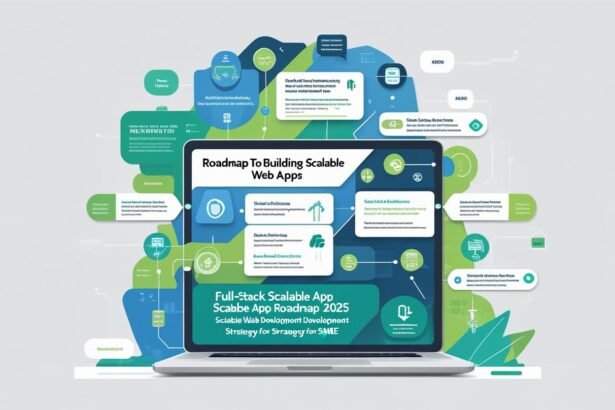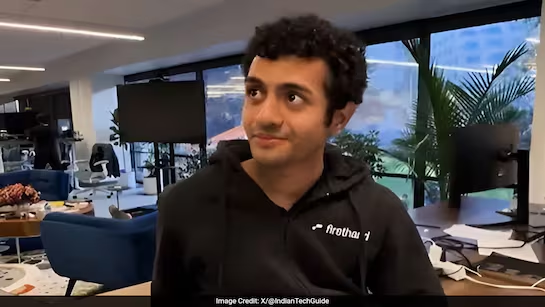The Viral Silicon Valley Story
Picture this: one engineer, based in India, quietly working for five different startups at the same time, each expecting full-time dedication in the heart of Silicon Valley. That's the headline-grabbing saga of Soham Parekh. His balancing act across multiple remote roles went viral, sparking outrage, astonishment, and introspection across the tech world.
Brief Summary of the Controversy
It began when startup investor Suhail Doshi called Parekh out on X, alleging he was “ghosting” teams at night, promising deliverables he never hit. Soon, five companies (Synthesia, Supernormal AI, Sunstone, Alan AI, and Arthur) publicly confirmed employment and performance issues. According to TechCrunch's coverage, Soham Parekh defended his actions as survival-driven ambition and financial necessity. This Soham Parekh controversy exposed startup hiring ethics concerns across the industry.
Thesis – A Mirror to Startup Ethics and Remote Work
This isn't just a sensational tale. It reflects deeper systemic issues: the gray ethics of moonlighting, remote work vetting gaps, developer burnout, and the immense pressures on aspiring engineers. Here at TrendiMint Studio, we've been tracking similar stories, and Parekh's case is a cautionary wake-up call for the tech industry, highlighting how hustle culture in tech can drive professionals toward unsustainable practices. Harvard Business Review has extensively covered the challenges of remote work management.
Who Is Soham Parekh?
Background – Education & Self-Reported Credentials
According to his LinkedIn profile and résumé, Parekh claimed a top-tier computer science degree and participation in the prestigious GitHub Fellow program. This pedigree helped him bounce from one freelance role to another, drawing interest from Silicon Valley employers who valued his branding and “global engineer” image.
Role Highlights – GitHub Fellow, Synthesia, Alan AI, Others
- He publicly listed several roles, including:
- A stint as a GitHub Fellow, apparently for open-source contributions.
- Developer roles at Synthesia, Alan AI, Supernormal AI, Arthur, and Sunstone.
Rise to Attention – Getting Hired Despite Red Flags
Here's the thing: early startups hire fast, often skipping rigorous checks to land talented engineers. Parekh jumped through loopholes by leveraging overlapping part-time contracts until someone noticed the scheduling impossibility. These remote job vetting issues would later become central to the Soham Parekh scandal.
The Unraveling
Suhail Doshi Sparks the Fire – X Post
The unraveling began in early June 2025, when investor Suhail Doshi publicly questioned Parekh's “ghosting” behavior: long midnight absences, missed calls, unfulfilled deadlines. That single post ignited a wave of conversation across the tech community.
Timeline – Firings and Accusations
Within days:
- Synthesia said Parekh never showed up.
- Supernormal AI alleged no-shows during meetings.
- Alan AI, Sunstone, and Arthur echoed complaints of delayed work.
- By mid-June, he was no longer employed at any of the five.
Employers' Complaints – No‑Shows & Delays
The common thread: Parekh would accept tasks, promise delivery, but then vanish (presumably while focusing on other roles). Employers reported: “He wouldn't return calls or update tasks after hiring.”
Public Reaction on LinkedIn, X, Reddit
The tech community exploded. Some called him a fraudster; others pointed to the extreme pressures supporting moonlighting and remote work. Reddit discussions debated whether this was blatant deception or a desperate hustle. The story became a lightning rod for broader debates about overemployment remote work practices, with Hacker News hosting heated discussions.
Parekh's Side of the Story
Public Statements & Podcast Summary
In interviews and a recent podcast, Parekh offered his defense. He said he never intended harm and worked tirelessly (estimates ranged from 100 to 140 hours per week). The Soham Parekh podcast revealed his perspective on the controversial employment arrangements. Podcast platforms have seen similar stories emerge as remote work becomes more prevalent.
His Claims – Overworked & Financially Pressured
He described financial stress (supporting family, pursuing a startup dream) and saw moonlighting as a lifeline. He claimed he fully intended to deliver across all roles.
Denials – No Outsourcing, No AI Delegation
He staunchly denied using AI tools or ghost workers to fake productivity. According to him, all code was his own; he simply couldn't keep up.
New Role – Darwin Studios
Despite the fallout, Parekh announced a new position at Darwin Studios, raising eyebrows: “How could someone with five recent firings land another role so fast?”
The Broader Conversation
Moonlighting Ethics – Gray Area or Deception?
Is moonlighting dishonest, or a practical survival strategy in global remote markets? Team TrendiMint has seen this debate play out across forums and social media. Parekh's case exposes that Silicon Valley moonlighting crosses from hustle into deception when employers expect “full-time” but aren't explicit.
Remote Work Loopholes – Vetting Failures
Startups, especially early-stage, often hire quickly with minimal checks. They rely on résumé claims and GitHub links. Working across time zones and with asynchronous teams increases opportunities for abuse.
Overemployment – A Growing Trend
Reports suggest 20-30% of remote developers work multiple jobs. Some brag about it as efficiency; others warn it's bound to collapse under unrealistic expectations. Remote work statistics show this trend is accelerating globally.
Burnout vs. Ambition – The Culture Equation
Parekh may not be a villain but a symbol of ambition's dark side. The “grind harder” mantra can push talented individuals toward risky decisions with long-term mental and physical costs. Is this sustainable or just self-sabotage? Studies on developer burnout highlight these risks.
Startups, Vetting & the Trust Gap
Why Early-Stage Startups Are Vulnerable
New startups want top talent fast with minimal capital reserves. They trust LinkedIn, GitHub, and word of mouth but not much beyond that.
Due-Diligence Failures in Hiring
Many rely on remote interviews and code portfolios. Few do reference checks that reveal reliability or personal circumstances that affect performance. Hiring best practices emphasize the importance of thorough vetting processes.
Lessons for Founders – Checks & Clauses
Founders should:
- Perform detailed reference checks.
- Use trial contracts with deliverables.
- Add moonlighting and time commitment clauses.
- Monitor productivity through clear metrics.
- Startup hiring guides from Y Combinator provide additional frameworks for early-stage companies.
Soham Parekh: Villain, Victim, or Visionary?
Public Division – Opportunist vs. Desperate Hustler
Some see Parekh as an opportunist exploiting weak vetting systems. Others view him as struggling for opportunity in an uneven global job market.
Global South Pressure – Talent vs. Necessity
The pressure on Global South developers (to support families while chasing dream roles) adds layers. We at TrendiMint Studio have noticed that Parekh may represent a generation balancing rare remote-work chances and high stakes.
Ethical Debate – Fraud or Survival Strategy?
Is this outright fraud, or adaptive strategy in an unstructured market? The truth may be somewhere in between: ethical ambiguity layered with systemic issues.
Conclusion
Reiterating the Larger Significance
Soham Parekh's story isn't a one-off scandal. It's a systemic symptom. It highlights moonlighting, remote vetting, and ambition-fueled pitfalls in tech.
Exposing Systemic Tech Employment Issues
From the ease of remote hiring to unrealistic engineer expectations, the case reveals deep structural cracks. It shows that hiring processes, culture, and ethics need urgent alignment. Tech employment trends indicate these issues are becoming more widespread.
A Cautionary Tale or Wake-Up Call?
This saga is both. For developers: consider sustainable pace, clear agreements, and honesty. For startups: strengthen hiring practices and workplace policies. Otherwise, the culture that glamorizes nonstop hustle may crash down, one Parekh-like story at a time.
Read More: Looking to start your career in Tech? Here's a guide









